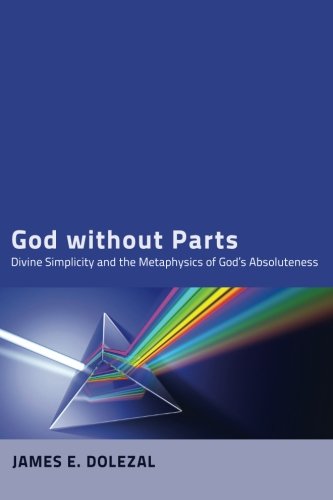A Brief Book Summary from Books At a Glance
About the Author
James E. Dolezal is a Research Fellow at the Craig Center for the Study of the Westminster Standards, Westminster Theological Seminary, Philadelphia, Pennsylvania.
Introduction
The doctrine of divine simplicity has a long pedigree in the history of the church, but it is under severe attack by contemporary theologians and philosophers. Many are rejecting the doctrine as incoherent. In this book Dolezal responds to the philosophical and theological challenges that are being urged against God’s simplicity. He endeavors to demonstrate that these objections fail, and that simplicity is necessary in order to understand God’s attributes and nature. Dolezal interacts with both historical and contemporary sources to make his case that the doctrine of divine simplicity is actually an essential theological point for a right understanding of God.
Table of Contents
Foreword by Paul Helm
Preface
Chapter 1 Friends and Foes of the Classical Doctrine of Divine Simplicity
Chapter 2 Simplicity and the Models of Composition
Chapter 3 Simplicity and the Theological Rationale for Divine Absoluteness
Chapter 4 Simplicity and God’s Absolute Existence
Chapter 5 Simplicity and God’s Absolute Attributes
Chapter 6 Simplicity and God’s Absolute Knowledge and Will
Chapter 7 Simplicity and the Difficulty of Divine Freedom
Conclusion
Summary
Chapter One
Friends and Foes of the Classical Doctrine of Divine Simplicity
The doctrine of divine simplicity (DDS) is necessary if God is to not to be ontologically dependent on anything besides himself. If he is composed of parts, then he is dependent on those parts for his existence. God is not composite but is identical with his existence and all of his attributes. Everything in God is God. DDS has been the normative view in church history. The church fathers recognized that if something was composite it was divisible, and also that a composite entity could not be ontologically ultimate. DDS was necessary to preserve the full deity of each person of the Trinity, while ensuring that God was one rather than three. God’s attributes cannot be separated from his essence. Medieval theologians and philosophers continued to uphold DDS, and it was Thomas Aquinas who articulated the doctrine with great precision. He argued that anything that is composite can be dissolved, and everything composite requires a composer. Aquinas’ most important contribution was seeing that even souls and angels were composite in that their existence and essence were not identical. In God, therefore, essence is identical with existence. The Reformers and their followers did not modify Aquinas’ position, but they did seek to demonstrate its biblical foundations. The Reformed and Thomist traditions carried this view forward into the Twentieth Century.
Despite its historical strength, DDS has been challenged today by…
[To continue reading this summary, please see below....]The remainder of this article is premium content. Become a member to continue reading.
Already have an account? Sign In
